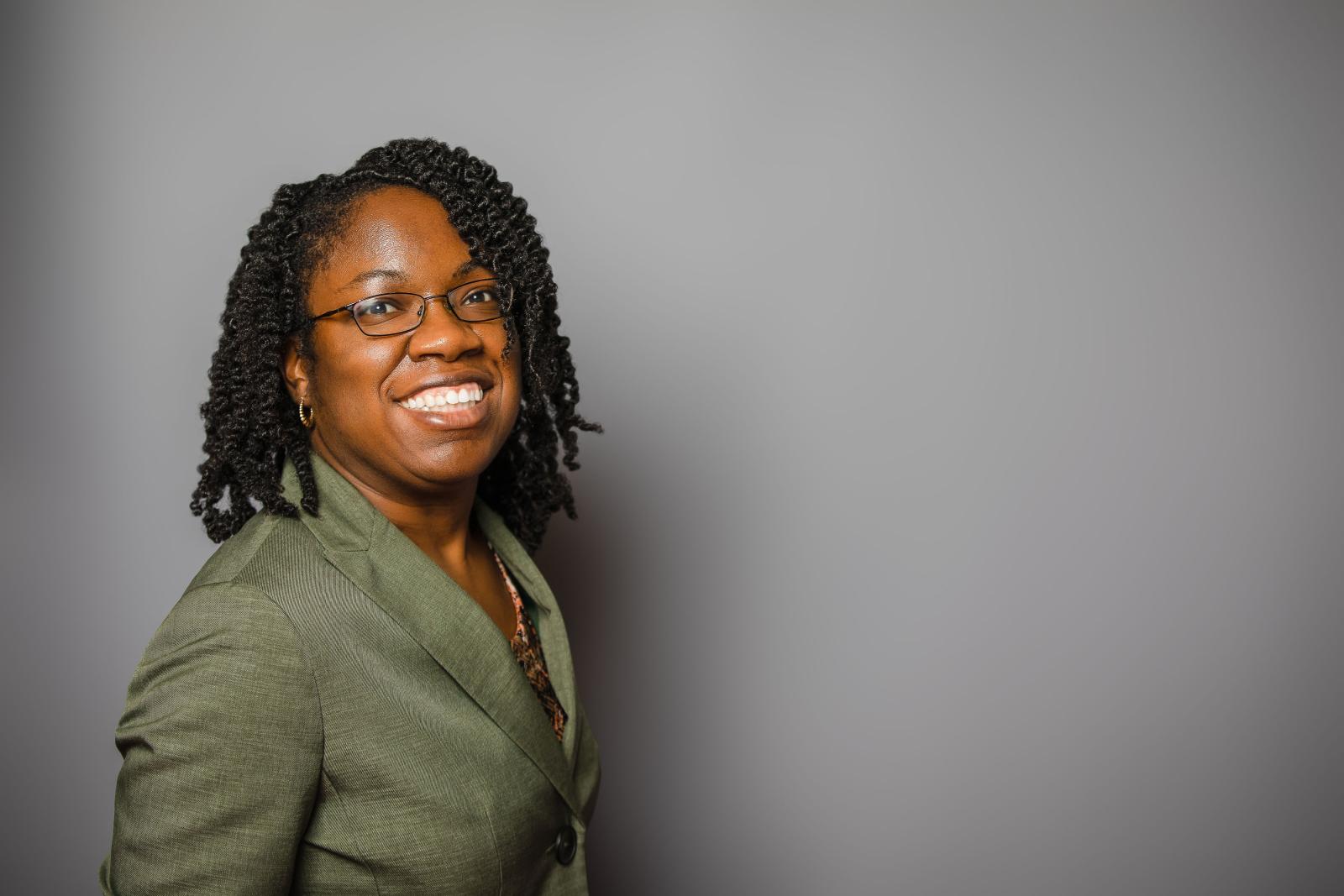Britney Wilson (BA ’12), an associate professor of law and director of the Civil Rights and Disability Justice Clinic at New York Law School, is a pioneer for people with multi-marginalized identities.
As a Black woman with cerebral palsy, Wilson observed and experienced the gaps in society, especially in institutional systems lacking inclusion of people of color with disabilities. Ironically, one of the most prominent places where Wilson observed this void was in the civil rights and racial justice fields.
Prior to entering legal academia, Wilson practiced civil rights law in the Racial Justice Program at the National Office of the American Civil Liberties Union (ACLU), the Center for Constitutional Rights (CCR), and the National Center for Law and Economic Justice (NCLEJ). Wilson often felt that neither the “traditional civil rights” and racial justice field nor the disability rights field addressed the needs of or told the full story of people of color with disabilities. Fueled by her passion to expand that conversation, she pressed forward to her current position at New York Law School.
I wanted to emphasize that disability touches on every aspect of social justice.”
To ensure that this work was inclusive of all people with disabilities, especially those with intersectional identities, Wilson spearheaded the launch of New York Law School’s Civil Rights and Disability Justice Clinic. The clinic won a $300,000 grant by the Ford Foundation last year to continue its work advocating for people with disabilities. “I wanted to emphasize that disability touches on every aspect of social justice,” Wilson says.
The clinic and its co-counsel at the National Center for Law and Economic Justice are representing underrepresented community groups in Brooklyn in a federal administrative complaint under Title VI of the Civil Rights Act of 1964. They filed the complaint with the U.S. Environmental Protection Agency (EPA) and the U.S. Department of Transportation (DOT)’s Pipeline and Hazardous Materials Safety Administration. Wilson and her students challenged New York State agencies’ actions in the face of the National Grid’s construction of a fracked gas pipeline in communities of color in Brooklyn, without environmental review and community knowledge.
The EPA and DOT have accepted their complaint for investigation, which is a rare action; they are currently working with the EPA and DOT to resolve the complaint and hopefully stop the ongoing flow of gas in the pipeline. “This advocacy is especially important to me because I'm a native and resident of phase 1 of the pipeline in Brownsville, Brooklyn. I got involved in this advocacy because my mom asked me to—literally. So, it's been this equally challenging, frustrating, yet amazing experience of getting to support my incredible neighbors in this fight,” she says.
There is something about Howard that you come out of there untouchable. You are rooted in who you are.”
As Howard’s first full-ride Tom Joyner Foundation scholar, Wilson advocated for students with disabilities at Howard. Attending an HBCU as a person of color with a disability highlighted how the championing of one marginalized identity (e.g. race) didn’t always lead to the necessary recognition or understanding of other marginalized identities (i.e. disability). This realization reinforced her commitment to advocating for people of color with disabilities to be represented in all spaces.
During her time at Howard, she served as a columnist and editor of the opinion section for the Hilltop. An avid writer, she was encouraged by professors to pursue the arts. Today, Wilson desires to write a book about her experiences. She acknowledges that her village, love of community, and strong sense of purpose are the foundation of the opportunities and success that she’s had. Her hope is to pay it forward to continue to impact the lives of others. “There is something about Howard that you come out of there untouchable. You are rooted in who you are,” she says. “You have a strong sense of purpose; a deep love for community in all of its flaws and really wanting to make things better for people.”
Article ID: 1411




